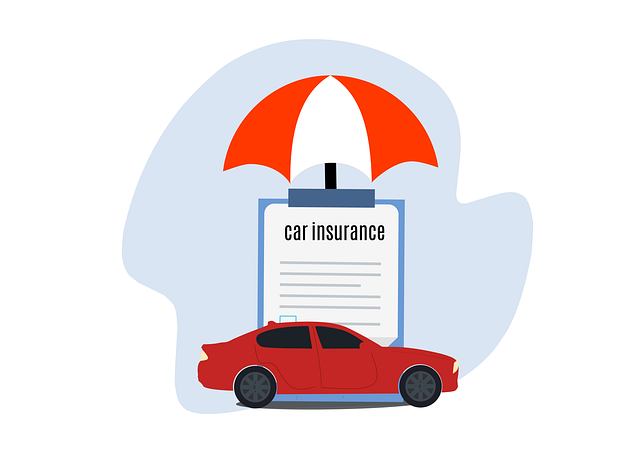Commercial insurance is a critical safety measure for businesses, offering tailored protection against property damage, liability claims, and revenue interruptions. Understanding key types like general liability, property coverage, and business interruption empowers entrepreneurs to select policies matching their operations, providing peace of mind for focused growth and risk mitigation. Choosing the right provider involves prioritizing specific business needs, researching expertise and reputation, comparing quotes, and understanding policy details. Prompt claim handling, including immediate insurer contact and thorough record-keeping, ensures fair and efficient resolution.
“In today’s dynamic business landscape, safeguarding your operations against unforeseen risks is paramount. This comprehensive guide delves into Commercial Insurance, offering a thorough understanding of its intricacies. From types of coverage catering to diverse industry needs to the importance of insuring your business, we explore key components and selection criteria. Learn about the claim process, your rights, and responsibilities. Master the art of choosing the right provider. Discover why Commercial Insurance isn’t just an option—it’s a strategic necessity for businesses aiming to thrive.”
Understanding Commercial Insurance: A Comprehensive Guide

Commercial insurance is a vital component for any business, protecting it from potential risks and financial losses. It’s a safety net that covers various aspects, including property damage, liability claims, and revenue interruption. Understanding commercial insurance involves grasping its different types, such as general liability, property coverage, and business interruption, each catering to specific needs.
This comprehensive guide aims to demystify the process, helping businesses make informed decisions. By knowing what’s covered and what isn’t, entrepreneurs can tailor their policies to fit unique operations, ensuring they’re adequately protected. It’s not just about minimizing losses but also about peace of mind, allowing business owners to focus on growth and success while knowing potential pitfalls are mitigated.
Types of Commercial Coverage: What You Need to Know

Commercial insurance is a broad term encompassing various coverage options designed to protect businesses from potential risks and financial losses. Understanding these different types is essential for any business owner seeking to mitigate their exposure and secure their investment. The primary categories include property insurance, which covers buildings, equipment, and inventory against damages or theft; liability insurance, protecting against claims of bodily injury or property damage caused by business activities; and professional liability insurance, specifically tailored to safeguard professionals from errors, omissions, or negligence that may lead to financial liabilities.
Additionally, commercial coverage can extend to cover business income interruption, ensuring continued operations during unforeseen events, as well as employer’s liability insurance, which addresses workplace injuries and illnesses. With these diverse options available, businesses can create a customized protection plan aligning with their unique needs and risk profiles.
Why Is Commercial Insurance Important for Businesses?

Commercial insurance is a safety net that safeguards businesses from potential financial losses and risks. In today’s competitive landscape, where unforeseen circumstances can arise at any moment, having the right coverage is not just beneficial—it’s essential. Whether it’s a small startup or a large corporation, commercial insurance provides a protective shield against various perils, including property damage, liability claims, and business interruptions.
Without adequate protection, businesses may face significant financial strain if they encounter issues like natural disasters, accidental injuries on their premises, or legal disputes. Commercial insurance helps mitigate these risks, ensuring that operations can continue uninterrupted and financial stability is maintained. It offers peace of mind, allowing entrepreneurs and business owners to focus on growth and success without the constant worry of potential setbacks.
Key Components of a Commercial Insurance Policy

When considering Commercial Insurance, understanding the key components is vital for any business owner. The policy’s scope should encompass property damage coverage, protecting buildings and equipment from perils like fire, theft, or natural disasters. Liability protection is another critical element, shielding businesses against claims of bodily injury or property damage incurred by third parties on their premises. Additionally, business interruption coverage ensures continuity by compensating for lost revenue during unforeseen events that halt operations.
Employer’s liability and professional indemnity are essential for specific business types. The former protects against claims related to employee injuries or illnesses, while the latter shields professionals from financial loss due to negligence in providing services. These components collectively form a robust safety net, mitigating potential risks and ensuring businesses can navigate challenges with confidence.
How to Choose the Right Commercial Insurance Provider

Choosing the right commercial insurance provider is a crucial step for any business owner, as it significantly impacts their risk management strategy and financial security. When selecting a provider, consider your specific business needs first. Different industries have unique risks; therefore, an ideal insurance company should offer tailored coverage options to address these risks effectively. For instance, a restaurant owner might require liability protection against food poisoning incidents, while a tech startup may need coverage for intellectual property theft.
Researching potential providers is key. Look beyond their advertising and focus on their expertise, market reputation, and client testimonials. Check if they have experience in your industry and can provide references from satisfied clients. Additionally, ensure the provider offers competitive pricing without compromising quality. Compare quotes from multiple insurers to find a balance between cost-effectiveness and robust coverage. Remember, a reputable commercial insurance provider should be transparent about policies, exclusions, and potential savings opportunities, enabling you to make an informed decision for your business’s long-term protection.
Claim Process and Management: Your Rights and Responsibilities

When it comes to commercial insurance, understanding the claim process and your rights is paramount. If you find yourself needing to file a claim, the first step is to contact your insurance provider as soon as possible. They will guide you through the initial steps, which typically involve reporting the incident or damage to them and providing all necessary details. Your policy documents will outline specific requirements for claiming, so ensure you have them handy.
As the policyholder, you have rights during this process. You’re entitled to timely responses from your insurer and clear communication about the status of your claim. They must investigate your claim fairly and accurately, per industry standards. It’s crucial to keep records of all communications and documents related to the claim for easy reference and to ensure a smooth management process.
